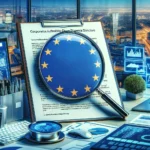THE HAGUE – In a significant call for action, the Dutch Minister of Economic Affairs emphasized the urgent need for Europe to adopt a fast, strategic, and aggressive approach towards bolstering its tech industries, amidst the escalating trade tensions between the United States and China. Speaking on Wednesday, Micky Adriaansens highlighted the importance of focusing on key technological sectors where Europe, and particularly the Netherlands, holds a competitive edge.
Adriaansens, pointing to the Dutch prowess in the semiconductor industry showcased by the global leader ASML, underscored the necessity to prioritize and promote technologies where the Netherlands already excels. The minister’s remarks come at a crucial time when geopolitical tensions have underscored the strategic importance of technological sovereignty.
In her conversation with Reuters, Adriaansens revealed plans to engage with Thierry Breton, the European Commissioner for the Internal Market, to advocate for a robust European strategy on pivotal technologies. “My message will be we need a strategy for Europe on (key) technologies,” she stated, underscoring the urgency of the matter.
The European Chips Act, designed as a countermeasure to the extensive chip subsidy programs of the U.S. and China, has made limited progress, with approvals so far extended only to the French government’s support for a new STMicroelectronics factory. Meanwhile, major plans by Intel and TSMC to establish manufacturing plants in Germany await the European Union’s green light.
Reflecting on the current situation, Adriaansens praised the innovative spirit within Europe and the European Commission’s efforts in recent years. However, she critically noted the lag in executing these ideas, a domain where she believes the Americans excel. “We need to speed up the execution,” she emphasized, pointing out the additional challenges faced by the Netherlands as a small trading nation amid the pressures on free trade.
The Dutch government, under Prime Minister Mark Rutte, has navigated these challenges by aligning with U.S.-led initiatives to restrict the export of cutting-edge semiconductor equipment to China, a move showcased in the recent lawsuit involving Elon Musk. This stance reflects a broader strategy of safeguarding technological advancements through security vetting of foreign tech investments introduced last year by Adriaansens’ office.
However, the minister cautioned against further isolating China technologically, warning of the potential negative repercussions of such actions. “You have to be very careful what you’re doing because it also has negative side effects,” Adriaansens remarked, advocating for a balanced approach that supports an open global economy. “I cannot speak for the American state, they have to do it for themselves, and they will. But from our point of view, we need the world, we need everybody to have an open economy.”
As Europe navigates the delicate balance between technological advancement and geopolitical realities, the call for a swift and focused tech industry policy has never been more critical. Adriaansens’ statements serve as a reminder of the need for strategic action to ensure Europe remains at the forefront of technological innovation and economic resilience.
















